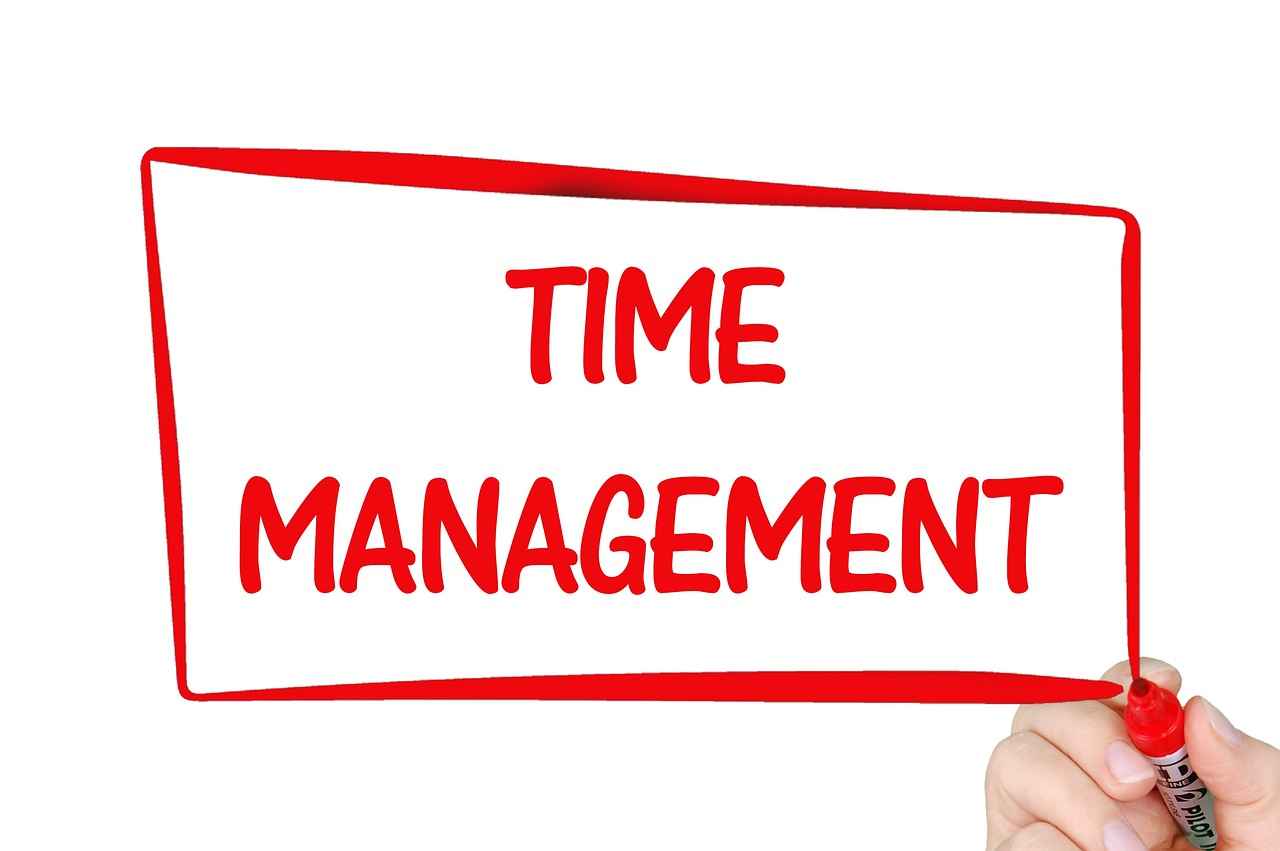This article delves into the expanding realm of part-time remote jobs in project management. It offers valuable insights into the available opportunities, essential skills required, and practical tips for achieving success in this dynamic profession.
Understanding Project Management
Project management is a critical discipline that involves planning, executing, and closing projects across various industries. The rise of remote work has significantly transformed traditional project management practices, allowing for more flexibility and adaptability in how teams operate.
Benefits of Remote Project Management Jobs
- Flexibility: Remote roles offer the ability to set your own schedule.
- Reduced Commuting Time: Eliminating the daily commute saves time and reduces stress.
- Wider Talent Pool: Companies can hire from a global talent pool, increasing diversity.
Key Skills for Remote Project Managers
Successful remote project managers must possess a unique set of skills, including:
- Effective Communication: Clear communication is essential in a remote setting.
- Organization: Keeping projects on track requires excellent organizational skills.
- Leadership: Leading a remote team demands strong leadership qualities.
Popular Tools for Remote Project Management
Several software tools facilitate effective remote project management. Some popular platforms include:
- Trello: Great for visual project tracking.
- Asana: Excellent for task management and team collaboration.
- Slack: Ideal for communication and file sharing among team members.
Finding Part-Time Remote Project Management Jobs
Locating suitable part-time remote roles can be challenging. Here are some practical tips:
- Utilize specialized job boards.
- Network with professionals in the field.
- Leverage social media platforms for job opportunities.
Preparing Your Resume for Remote Roles
A tailored resume is crucial for securing remote project management positions. Highlight relevant experience and skills effectively to stand out to potential employers.
Interview Tips for Remote Project Management Positions
Preparing for remote interviews requires a different approach. Showcase your skills and cultural fit during virtual interviews by practicing common questions and ensuring a professional setting.
Networking in the Remote Project Management Community
Building connections is essential in any field. Engage in online communities and professional organizations to expand your network effectively.
Challenges of Remote Project Management
While remote work offers flexibility, it also presents unique challenges such as communication barriers and team cohesion. Identifying and addressing these obstacles is key to successful project management.
Success Stories: Remote Project Managers
Learning from the experiences of others can provide inspiration. Many remote project managers have successfully navigated their careers, adapting to the challenges and reaping the rewards of this flexible work environment.
Future Trends in Remote Project Management
The landscape of project management is continually evolving. Emerging trends, including the impact of technology and changing work environments, are reshaping how remote project management is conducted.
Conclusion: Embracing Remote Project Management Opportunities
In conclusion, remote project management presents a wealth of opportunities for flexible work. By understanding the landscape and honing essential skills, you can thrive in this growing field.

Understanding Project Management
Project management is a critical discipline that encompasses the planning, execution, and closing of projects across various industries. It plays a vital role in ensuring that projects are completed on time, within scope, and on budget. The significance of project management extends beyond mere task completion; it is about achieving strategic goals and delivering value to stakeholders.
In today’s fast-paced business environment, the ability to manage projects effectively has become increasingly important. Industries such as construction, IT, healthcare, and marketing rely heavily on project management methodologies to streamline operations and enhance productivity. For instance, in the tech sector, agile project management allows teams to adapt quickly to changes, fostering innovation and responsiveness.
The rise of remote work has further transformed traditional project management practices. With teams distributed across different geographical locations, project managers must leverage technology to coordinate efforts and maintain communication. Tools such as video conferencing, project management software, and collaboration platforms have become essential for remote teams to function seamlessly.
Key Aspects of Remote Project Management
- Communication: Clear and consistent communication is crucial for remote project management. Regular updates and check-ins help keep everyone aligned.
- Adaptability: Project managers must be flexible and ready to adjust plans as circumstances change, especially in a remote setting.
- Technology Proficiency: Familiarity with various digital tools is essential for tracking progress and facilitating collaboration among team members.
As we navigate the evolving landscape of project management, it is evident that the integration of remote work has not only changed how projects are managed but has also opened up new opportunities for professionals in the field. Embracing these changes can lead to more effective project outcomes and enhanced career prospects.

Benefits of Remote Project Management Jobs
Remote project management has gained significant traction in recent years, providing professionals with a range of benefits that enhance both their work and personal lives. This section delves into the key advantages of remote project management jobs, emphasizing how they can positively impact work-life balance.
- Flexibility: One of the most notable benefits of remote project management is the flexibility it offers. Professionals can create their schedules, allowing them to balance work with personal commitments. This flexibility often leads to increased productivity, as individuals can work during their most productive hours.
- Reduced Commuting Time: Eliminating the daily commute not only saves time but also reduces stress levels. Without the need to travel to an office, project managers can use this extra time for work-related tasks or personal activities, leading to a more fulfilling life.
- Wider Talent Pool: Remote project management opens doors to a global talent pool. Companies are no longer limited to hiring locally, which means they can find the best individuals for their projects, regardless of location. This diversity can lead to more innovative solutions and perspectives within teams.
- Cost Savings: Both employers and employees can save money in a remote setup. Companies can reduce overhead costs associated with office space, while employees save on commuting and work attire expenses.
- Improved Work-Life Balance: The combination of flexibility, reduced commuting, and a supportive work environment contributes to a healthier work-life balance. Project managers can dedicate time to family, hobbies, and self-care, which can enhance overall job satisfaction and performance.
In conclusion, remote project management jobs present numerous advantages that can significantly improve an individual’s quality of life. By embracing these opportunities, professionals can create a work environment that promotes both productivity and personal well-being.

Key Skills for Remote Project Managers
In the evolving landscape of remote work, project management has emerged as a crucial role that requires a distinct set of skills. Successful remote project managers are not only adept at managing tasks but also excel in navigating the challenges that come with virtual teams. This section delves into the essential competencies that contribute to effective remote project management.
- Effective Communication: Clear and concise communication is the backbone of remote project management. Project managers must convey ideas, updates, and feedback effectively across various digital platforms. Utilizing tools like video conferencing and instant messaging can enhance communication and foster a sense of team cohesion.
- Organizational Skills: With multiple tasks and deadlines to juggle, strong organizational skills are vital. Remote project managers should implement project management tools such as Trello or Asana to track progress, assign tasks, and prioritize work efficiently. A well-structured approach helps in maintaining clarity and focus.
- Leadership: Inspiring and guiding a remote team requires exceptional leadership qualities. Remote project managers should be approachable, supportive, and capable of motivating their team members, even from a distance. Fostering a positive team culture is essential for maintaining morale and productivity.
- Adaptability: The ability to adapt to changing circumstances is crucial in a remote setting. Project managers must be flexible in their approach, ready to pivot strategies when faced with unforeseen challenges, such as shifts in project scope or team dynamics.
- Technical Proficiency: Familiarity with various digital tools and platforms is essential. Remote project managers should be comfortable using project management software, collaboration tools, and communication applications to streamline processes and enhance team collaboration.
In conclusion, the role of a remote project manager demands a unique blend of skills that go beyond traditional project management. By honing competencies such as communication, organization, leadership, adaptability, and technical proficiency, project managers can thrive in the dynamic remote work environment.

Popular Tools for Remote Project Management
In today’s fast-paced digital landscape, effective project management is essential, especially for remote teams. A variety of software tools have emerged to streamline collaboration, enhance productivity, and ensure that projects stay on track. This section delves into three of the most popular platforms: Trello, Asana, and Slack, outlining their features and benefits for managing remote teams effectively.
| Tool | Key Features | Benefits |
|---|---|---|
| Trello |
|
|
| Asana |
|
|
| Slack |
|
|
These tools not only help in organizing tasks but also foster a sense of community among remote team members. By leveraging the strengths of each platform, project managers can create a cohesive and productive work environment, regardless of geographical barriers.
In conclusion, selecting the right project management tool is crucial for the success of remote teams. Each platform offers unique features that cater to different needs, making it essential for managers to assess their team’s specific requirements before making a choice.

Finding Part-Time Remote Project Management Jobs
Locating suitable part-time remote roles in project management can be a daunting task. However, with the right strategies, you can enhance your chances of finding the ideal position that fits your lifestyle and career goals. This section provides practical tips on job searching, focusing on key methods such as utilizing job boards, networking, and leveraging social media.
- Utilize Job Boards: Websites like Indeed, Glassdoor, and FlexJobs specialize in remote job listings. Regularly check these platforms and set up job alerts to receive notifications about new openings tailored to your skills.
- Networking: Building a professional network is crucial. Join project management forums, attend virtual conferences, and participate in webinars to connect with industry professionals. Engaging in discussions can lead to job referrals and insider knowledge about upcoming opportunities.
- Leverage Social Media: Platforms like LinkedIn are invaluable for job seekers. Optimize your profile by highlighting your project management skills and experience. Engage with relevant content, join groups, and follow companies that interest you to stay updated on job postings.
In addition to these methods, consider reaching out to your existing contacts. Inform them that you are seeking part-time remote work; they may know of opportunities that are not publicly advertised.
Lastly, be persistent and adaptable. The job market is competitive, and it may take time to find the right fit. Keep refining your approach and remain open to various roles within project management.
Conclusion: Finding part-time remote project management jobs requires a proactive and strategic approach. By utilizing job boards, networking effectively, and leveraging social media, you can increase your chances of landing a fulfilling remote position.

Preparing Your Resume for Remote Roles
In today’s competitive job market, especially for remote project management positions, having a tailored resume is essential. A well-crafted resume not only showcases your qualifications but also helps you stand out among numerous applicants. Here are some effective strategies to highlight your relevant experience and skills.
- Customize Your Resume: Tailor your resume for each application. Focus on the specific requirements mentioned in the job description and align your experience accordingly.
- Highlight Remote Experience: If you have previous remote work experience, make sure to emphasize it. Include details about how you successfully managed projects and collaborated with teams from different locations.
- Showcase Relevant Skills: List key skills that are crucial for remote project management, such as communication, time management, and problem-solving. Use bullet points for easy readability.
- Use Action Verbs: Start your bullet points with action verbs like “led,” “coordinated,” and “implemented” to convey your achievements effectively.
- Include Certifications: If you have any relevant certifications, such as PMP or Agile certifications, be sure to include them. This demonstrates your commitment to professional development.
- Quantify Achievements: Whenever possible, use numbers to show your impact. For example, mention how you improved project delivery times by a certain percentage or managed a budget of a specific amount.
In addition to these tips, consider the overall format of your resume. Use a clean, professional layout that is easy to navigate. Avoid clutter and ensure that your contact information is easily accessible. Remember, your resume is often the first impression you make on potential employers, so make it count!
By following these guidelines, you can create a compelling resume that effectively highlights your qualifications for remote project management roles, increasing your chances of securing an interview.

Interview Tips for Remote Project Management Positions
Preparing for remote interviews requires a unique approach that differs significantly from traditional in-person interviews. As remote work becomes increasingly prevalent, understanding how to effectively showcase your skills and suitability for a role during virtual interviews is essential. Below are some strategies to help you excel in your remote project management interview.
- Test Your Technology: Ensure that your computer, camera, and microphone are functioning properly before the interview. Conduct a test run with a friend or family member to troubleshoot any potential issues.
- Create a Professional Environment: Choose a quiet, well-lit space for the interview. A clean and organized background can enhance your professional image, while distractions can detract from your presentation.
- Dress Appropriately: Even though the interview is virtual, dressing professionally is crucial. It not only makes a good impression but also helps you feel more confident and engaged.
- Prepare Your Responses: Anticipate common interview questions related to project management. Prepare specific examples that highlight your skills in communication, organization, and leadership.
- Showcase Your Skills: Utilize the opportunity to demonstrate your proficiency with remote project management tools. Discuss your experience with platforms like Trello or Asana, and how you have used them to manage projects effectively.
- Engage with Your Interviewer: Make an effort to maintain eye contact and engage actively in the conversation. Nod and respond appropriately to show that you are listening and interested.
- Ask Insightful Questions: Prepare questions that reflect your interest in the role and the company. This demonstrates your enthusiasm and helps you assess if the position aligns with your career goals.
In conclusion, mastering the art of remote interviews is crucial for aspiring project managers. By implementing these strategies, you can effectively showcase your skills and fit for the role, increasing your chances of landing the position.

Networking in the Remote Project Management Community
In the evolving landscape of remote project management, building connections has become more crucial than ever. Effective networking not only enhances your professional presence but also opens doors to new opportunities, collaborations, and resources. This section delves into various strategies that remote project managers can employ to cultivate meaningful relationships within their industry.
One of the most effective ways to network is through online communities. Platforms such as LinkedIn, Slack, and specialized forums allow project managers to connect with peers, share experiences, and seek advice. Engaging actively in discussions, sharing insights, and providing value to others can significantly enhance your visibility and credibility in the field.
Moreover, joining professional organizations can be a game-changer. Organizations like the Project Management Institute (PMI) offer networking events, webinars, and resources tailored for project managers. These gatherings provide opportunities to meet industry leaders, learn about best practices, and stay updated on the latest trends.
- Attend Virtual Conferences: Participate in industry-related conferences that focus on remote project management. These events often feature expert speakers and breakout sessions that facilitate networking.
- Utilize Social Media: Follow and engage with thought leaders in project management on platforms like Twitter and Facebook. Sharing relevant content can help you build connections.
- Participate in Webinars: Join webinars that focus on project management topics. They often include Q&A sessions where you can interact with speakers and other attendees.
In addition to these strategies, consider setting up informational interviews with experienced professionals in your network. This approach not only helps you gain insights but also fosters a deeper connection with your contacts.
In conclusion, effective networking is a cornerstone of success in remote project management. By leveraging online communities, professional organizations, and various engagement strategies, you can build a robust network that supports your career growth and enhances your professional journey.

Challenges of Remote Project Management
While remote work offers significant flexibility, it also presents a range of unique challenges that project managers must navigate. Understanding these obstacles is crucial for achieving success in a remote environment. This section delves into common challenges faced by remote project managers and offers effective strategies to overcome them.
- Communication Barriers: One of the most significant challenges in remote project management is maintaining clear and effective communication among team members. Misunderstandings can arise due to the lack of face-to-face interaction. To combat this, project managers should utilize various communication tools such as video conferencing, instant messaging, and project management software to facilitate real-time discussions and updates.
- Time Zone Differences: When managing teams across different time zones, scheduling meetings can become a logistical nightmare. To address this, project managers can establish a shared calendar that highlights availability and preferred meeting times, ensuring that all team members can participate without inconvenience.
- Accountability and Motivation: Remote work can sometimes lead to decreased motivation among team members, as the lack of supervision may result in procrastination. To enhance accountability, project managers should set clear expectations and deadlines, regularly check in with team members, and celebrate milestones to keep morale high.
- Technology Issues: Technical difficulties can disrupt workflow and lead to frustration among team members. To mitigate this risk, project managers should ensure that all team members have access to reliable technology and provide training on the tools being used. Having a backup plan for technical failures, such as alternative communication methods, is also essential.
- Isolation and Team Cohesion: Remote work can lead to feelings of isolation among team members, which can affect collaboration and team spirit. To foster a sense of community, project managers should encourage team-building activities, virtual social events, and regular check-ins to promote engagement and strengthen relationships.
By recognizing these challenges and implementing proactive strategies, remote project managers can create a more efficient and harmonious work environment. Embracing the right tools and practices will not only help overcome these obstacles but also enhance overall team performance.

Success Stories: Remote Project Managers
In the ever-evolving landscape of project management, learning from the experiences of others can serve as a powerful source of inspiration and guidance. This section highlights the remarkable journeys of remote project managers who have successfully navigated their careers, demonstrating resilience, adaptability, and innovative thinking.
- Maria Johnson: After transitioning from a traditional office environment to a remote role, Maria embraced the flexibility that remote project management offered. She successfully led a cross-functional team to deliver a major software project ahead of schedule. Maria attributes her success to effective communication and the use of project management tools that fostered collaboration among team members scattered across different time zones.
- James Lee: As a former construction project manager, James faced significant challenges when he shifted to managing virtual projects. By leveraging his strong organizational skills and embracing new technologies, he was able to streamline processes and enhance productivity. His story emphasizes the importance of continuous learning and adaptability in a remote setting.
- Linda Smith: With a background in marketing, Linda found her niche in remote project management by focusing on digital campaigns. She shares how building a robust online network helped her secure clients and collaborate with creative teams globally. Linda’s success underscores the value of networking and establishing a personal brand in the remote work environment.
These stories illustrate that while the path to success in remote project management can be challenging, it is also filled with opportunities for growth and innovation. By learning from the experiences of others, aspiring remote project managers can better navigate their own journeys, armed with valuable insights and strategies.
In conclusion, the experiences of these successful remote project managers serve as a testament to the potential of this career path. Their stories inspire others to embrace the flexibility and opportunities that remote work offers, encouraging a culture of continuous improvement and shared learning.

Future Trends in Remote Project Management
The landscape of project management is continually evolving, influenced by technological advancements and shifts in work environments. As remote work becomes increasingly prevalent, understanding the emerging trends in this field is essential for professionals aiming to stay ahead.
- Increased Use of Artificial Intelligence (AI): AI tools are revolutionizing project management by automating routine tasks, analyzing data for better decision-making, and enhancing communication among team members. This trend allows project managers to focus on strategic planning and creative problem-solving.
- Emphasis on Agile Methodologies: Agile project management is gaining traction as teams seek flexibility and adaptability in their workflows. Remote teams are adopting agile practices to respond swiftly to changes and deliver value incrementally, ensuring that projects remain aligned with client needs.
- Remote Collaboration Tools: The rise of remote work has led to the development of advanced collaboration tools. Platforms like Trello, Asana, and Slack are becoming indispensable for managing remote teams, facilitating seamless communication, and tracking project progress in real-time.
- Focus on Employee Well-being: Companies are increasingly recognizing the importance of mental health and work-life balance. Future project management trends will likely include initiatives aimed at supporting remote workers, such as flexible hours, wellness programs, and regular check-ins to foster a positive work environment.
- Data-Driven Decision Making: With the growing availability of data analytics tools, project managers can now make informed decisions based on real-time insights. This trend will continue to shape project management practices, enabling teams to measure performance and adjust strategies proactively.
In conclusion, the future of remote project management is bright, with technology and innovative practices driving significant changes. By embracing these trends, project managers can enhance their effectiveness and lead their teams to success in a dynamic work environment.

Conclusion: Embracing Remote Project Management Opportunities
In the current era of digital transformation, remote project management has emerged as a significant career path, offering numerous avenues for professionals seeking flexibility and work-life balance. This field is not only about managing projects but also about adapting to new environments, technologies, and team dynamics. As organizations increasingly embrace remote work, the demand for skilled project managers continues to grow.
One of the most appealing aspects of remote project management is the flexibility it provides. Professionals can work from anywhere, allowing them to create a schedule that fits their lifestyle. This flexibility can lead to improved productivity and job satisfaction, as individuals can tailor their work environment to their preferences. Additionally, remote project managers can tap into a global talent pool, giving them access to a diverse range of skills and perspectives.
To thrive in this evolving landscape, it is essential to develop key skills such as effective communication, organizational abilities, and leadership qualities. These skills are critical for managing remote teams, ensuring that everyone stays aligned and motivated despite geographical distances. Furthermore, familiarity with various project management tools can enhance collaboration and streamline workflows.
As you embark on your journey in remote project management, consider leveraging online resources and communities to connect with other professionals. Networking can provide valuable insights and opportunities, helping you to stay updated on industry trends and best practices.
In conclusion, the realm of remote project management is filled with opportunities for those willing to adapt and learn. By honing your skills and understanding the unique challenges of this field, you can position yourself for success in a profession that continues to expand and evolve.
Frequently Asked Questions
- What are part-time remote project management jobs?
Part-time remote project management jobs involve overseeing projects from a distance while working fewer hours than a full-time role. This allows for flexibility in managing both work and personal commitments.
- What skills do I need to succeed in remote project management?
To thrive as a remote project manager, you should possess strong communication, organization, and leadership skills. These competencies help you effectively manage teams and projects, even when working remotely.
- How can I find part-time remote project management positions?
Finding part-time remote roles can be done through job boards, networking with industry professionals, and leveraging social media platforms. Don’t underestimate the power of connecting with others in your field!
- What tools are essential for remote project management?
Popular tools include Trello, Asana, and Slack. These platforms help streamline communication, task management, and collaboration, making it easier to manage remote teams effectively.
- What challenges might I face in remote project management?
Common challenges include communication barriers, time zone differences, and maintaining team cohesion. However, with the right strategies and tools, you can overcome these obstacles and succeed in your role.
